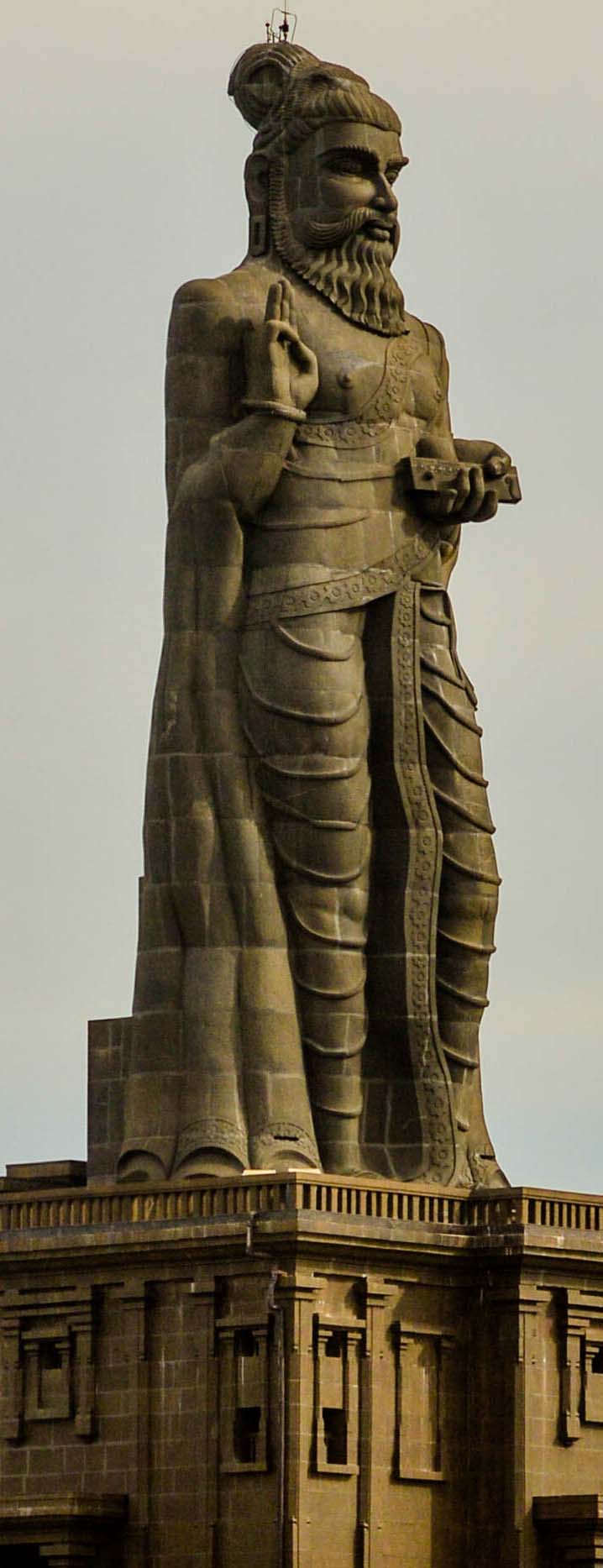Tiruvaḷḷuvar
Enlarge text Shrink text- His Sacred Kural, 1958.
- Diaz, S.M. Aphorisms of Valluvar, 1982:t.p. (Valluvar)
- His Tiroukkoural ... c1988:t.p. (Tirouvallouvar) p. iii (Tirou Vallouvar)
- Tiruvalluvara kr̥ta Tirukkurala, 1976.
- Lafẓ lafẓ guhar, 2000?:t.p. (Taravvallūr)
- Śrīmadbhagavadgītā aura Tirukkurala, 2011:p. 3 (Tiravallavura; Tamil poet)
Thiruvalluvar commonly known as Valluvar, was an Indian poet and philosopher. He is best known as the author of the Tirukkuṟaḷ, a collection of couplets on ethics, political and economic matters, and love. The text is considered an exceptional and widely cherished work of Tamil literature. Almost no authentic information is available about Valluvar, states Kamil Zvelebil – a scholar of Tamil literature. His life and likely background are variously inferred from his literary works by different biographers. There are unauthentic hagiographic and legendary accounts of Valluvar's life, and all major Indian religions, as well as Christian missionaries of the 19th century, have tried to claim him as secretly inspired (crypto-) or originally belonging to their tradition. Little is known with certainty about his family background, religious affiliation, or birthplace. He is believed to have lived at least in the town of Mylapore (a neighbourhood of the present-day Chennai), and his floruit is dated variously from fourth century BCE to early fifth century CE, based on the traditional accounts and the linguistic analyses of his writings. Kamil Zvelebil infers the Tirukkuṟaḷ and Valluvar are best dated to around 500 CE. Valluvar has influenced a wide range of scholars down the ages since his time across the ethical, social, political, economical, religious, philosophical, and spiritual spheres. He has long been venerated as a great sage, and his literary works a classic of Tamil culture.
Read more on Wikipedia >
 Personality
Personality









